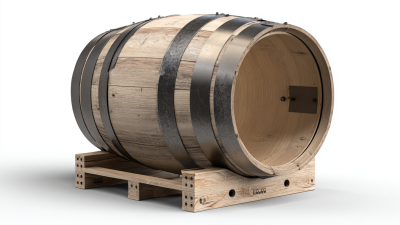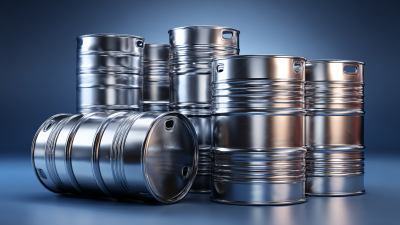The Ultimate Guide to Choosing the Right Plastic Barrels for Your Storage Needs
In today’s fast-paced industrial landscape, the importance of selecting the right storage solutions cannot be overstated. Plastic barrels have emerged as a preferred choice across various sectors due to their durability, cost-effectiveness, and versatility. According to a report by Market Research Future, the global plastic barrel market is projected to witness substantial growth, with an anticipated CAGR of 4.5% from 2021 to 2027. This surge in demand underscores the necessity for businesses to make informed decisions that cater to their specific storage needs. Whether for chemicals, food products, or waste management, understanding the different types of plastic barrels available is crucial for optimizing storage efficiency. As organizations strive to enhance their operational capabilities, a comprehensive guide to selecting the right plastic barrels will empower decision-makers to choose the most suitable options for their unique requirements.
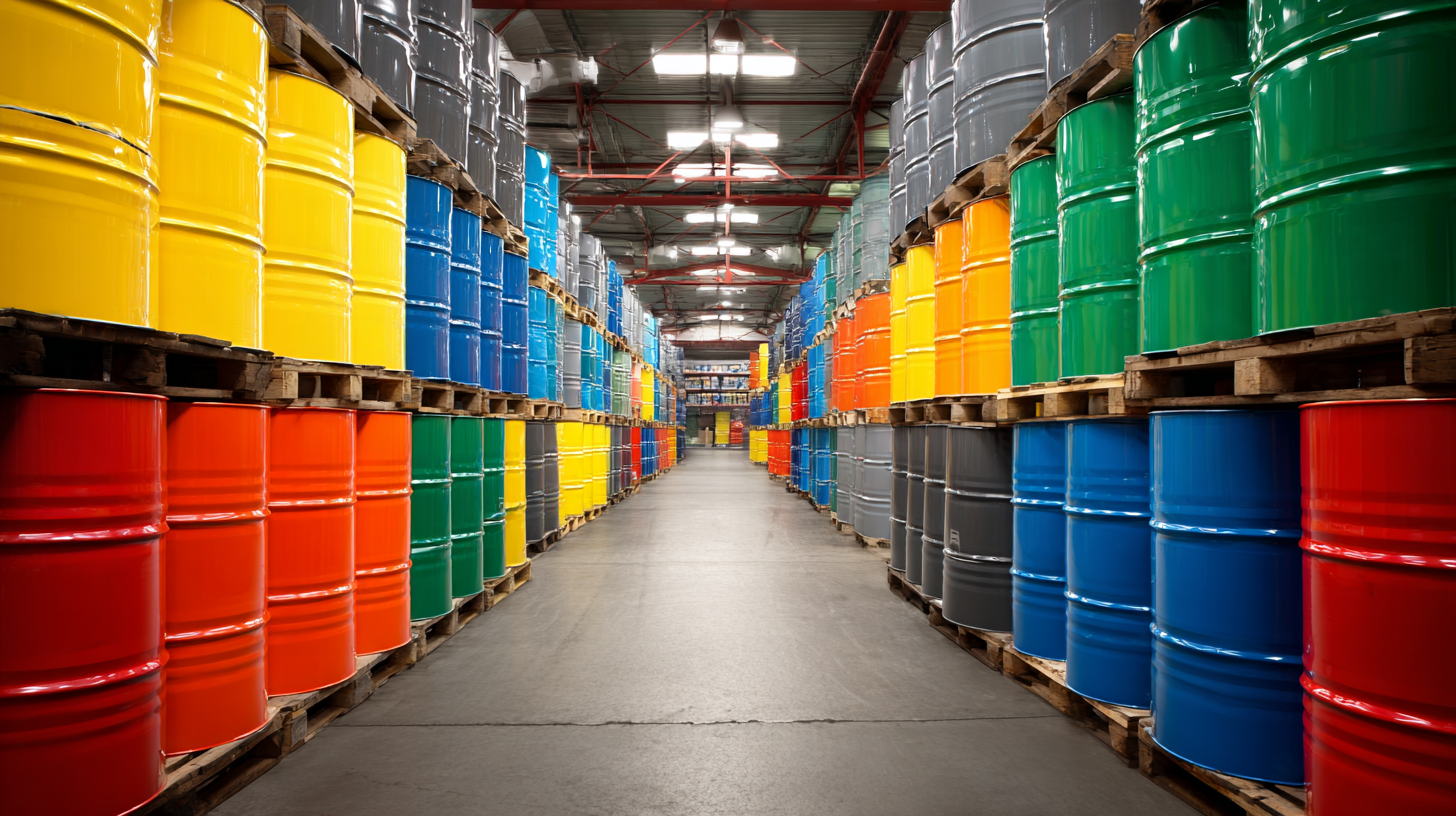
Understanding Different Types of Plastic Barrels and Their Applications
When selecting plastic barrels for various storage needs, understanding the different types of materials available is crucial. Common plastic types include
Commodity Plastics such as HDPE (High-Density Polyethylene),
LDPE (Low-Density Polyethylene),
PP (Polypropylene), and
PVC (Polyvinyl Chloride). These materials are typically used for general storage applications due to their
durability and resistance to chemicals.
Engineering Plastics and
Performance Plastics, such as
ABS (Acrylonitrile Butadiene Styrene),
PA (Polyamide),
PVDF (Polyvinylidene Fluoride), and
POM (Polyoxymethylene), offer enhanced properties, making them suitable for more demanding environments
where strength and temperature resistance are critical.
In addition to material types, the specific applications of plastic barrels play a significant role in the selection process. For instance,
rain barrels made from durable plastic are designed not only for efficient water collection but also
to withstand various weather conditions. Similarly, barrels used in the aerospace industry benefit from advanced composite materials that meet rigorous safety
and performance standards. Understanding these distinctions helps consumers and businesses make informed choices that align with their storage
requirements while considering the implications of material properties on functionality and environmental impact.
Key Factors to Consider When Choosing Plastic Barrels for Storage
When selecting plastic barrels for storage, it's vital to consider several key factors that ensure both safety and efficiency. One primary factor is the material of the barrel. Different types of plastics, such as polyethylene and polypropylene, can offer varying levels of durability and resistance to chemicals. For example, polypropylene barrels are frequently chosen for their strength and impact resistance, making them suitable for industrial applications.
Another important aspect to assess is the barrel's capacity and design. Depending on your storage needs, the size of the barrel can significantly impact your organization and accessibility. Larger barrels may be ideal for bulk storage, while smaller models can help streamline space in areas with limited room. Always ensure that the design includes features like secure lids and handles that facilitate easy moving and pouring.
Tips: Before making a purchase, perform a thorough inspection of the barrels. Check for any signs of wear, cracks, or degradation that could compromise safety. Additionally, consider the barrel’s intended use and the environment in which it will be stored to select the most appropriate material and design. Proper labeling and color-coding can also enhance organization and efficiency, ensuring that your storage strategy meets your specific needs.
Comparing Materials: HDPE vs. Other Plastic Options for Barrels
When it comes to selecting the right plastic barrels for your storage needs, understanding the materials available is crucial. High-density polyethylene (HDPE) barrels are a popular choice due to their strength, durability, and resistance to chemicals. HDPE barrels can withstand extreme temperatures and are less prone to cracking compared to other plastic options, making them ideal for industrial and agricultural applications. Additionally, their lightweight nature facilitates easier handling and transport.
However, there are alternative materials to consider. Polypropylene (PP) barrels, for example, offer excellent chemical resistance and are often used for storing harsh substances. While PP is more rigid than HDPE, it can be less durable in certain conditions, particularly when exposed to UV light. On the other hand, PVC barrels are cost-effective and versatile, suited for non-hazardous materials. Understanding the specific properties and limitations of each material is essential for ensuring safe and effective storage, allowing you to choose the barrel that best fits your particular requirements.
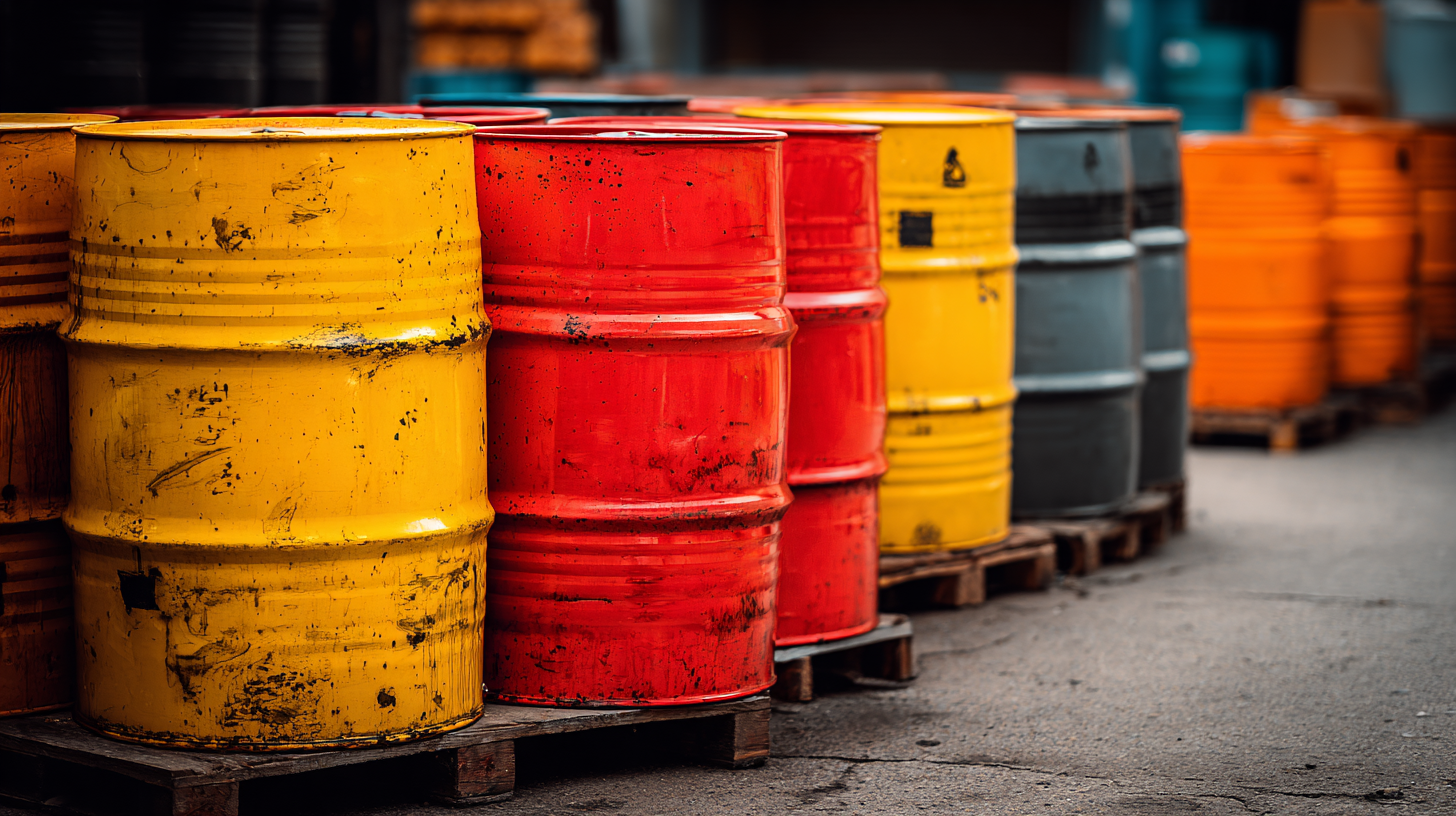
Size and Capacity: How to Select the Right Volume for Your Needs
When it comes to choosing the right plastic barrels for your storage needs, understanding size and capacity is paramount. According to a report by the Plastics Industry Association, plastic barrels come in various sizes, typically ranging from 5 gallons to 55 gallons. Selecting the appropriate barrel volume not only maximizes efficiency but also ensures that your stored materials are safely contained. For instance, food-grade barrels can be found in sizes like 30 gallons, which are ideal for bulk storage and offer a perfect balance between volume and manageability.
Tip: Always consider the weight of the contents you're storing. A fuller barrel can become quite heavy; thus, ensure the right size is chosen so that moving or handling them remains feasible. Additionally, keep in mind the space available for storage. A common mistake is to choose barrels that are too large for the intended space, leading to inefficient use of storage areas.
Moreover, it’s essential to evaluate your specific usage scenario. If you’re dealing with hazardous materials, the size of the barrel may be limited by regulations, which commonly necessitate using 55-gallon barrels that meet certain compliance standards. As reported by the Environmental Protection Agency, this sizing helps in standardizing handling and logistics, ensuring safety during transport and storage.
Tip: Always consult with suppliers about the specifications and regulations related to the materials you intend to store, as they can offer valuable insight tailored to your needs.
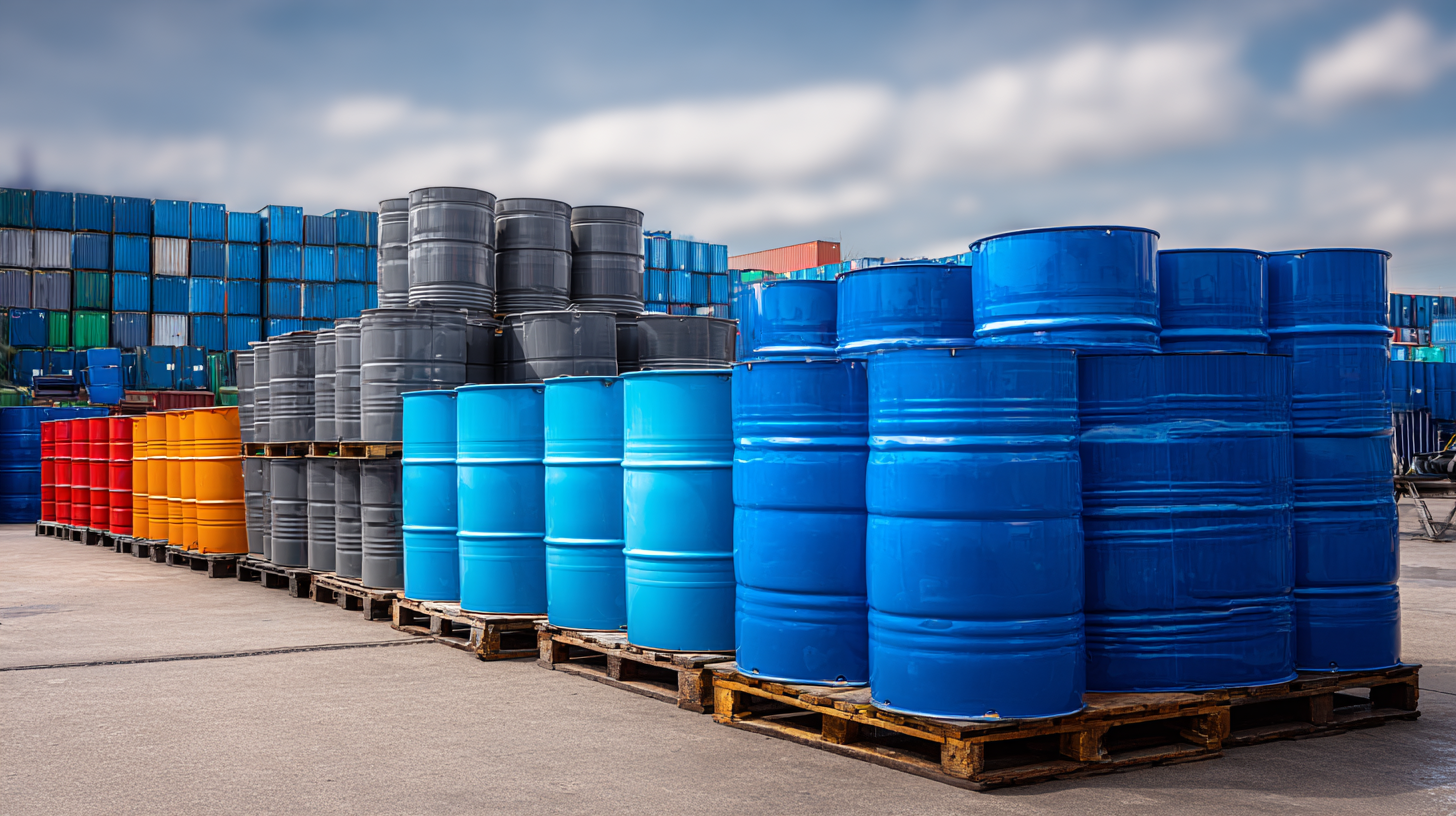
Common Mistakes to Avoid When Purchasing Plastic Barrels for Storage
When purchasing plastic barrels for storage, it's crucial to avoid common mistakes that can lead to dissatisfaction and potential losses. One major error is failing to assess the specific needs of the items being stored. Different materials and chemicals require distinct types of plastic barrels; for instance, food-grade barrels should be used for consumable goods, while hazardous materials need barrels designed to withstand corrosive substances. Ignoring these requirements can result in contamination or degradation of stored materials.
Another frequent pitfall is not considering the size and capacity of the barrels. Many buyers tend to choose barrels based solely on their exterior dimensions without understanding the volume they truly require. It’s essential to calculate the actual amount of material that will be stored and to leave sufficient space for air circulation if necessary. Additionally, overlooking the importance of durability and UV resistance can lead to premature wear and tear. Selecting barrels made from high-quality, resilient materials will ensure longevity and cost-effectiveness in the long run.
The Ultimate Guide to Choosing the Right Plastic Barrels for Your Storage Needs
| Feature |
Importance |
Common Mistakes |
Recommendations |
| Material Type |
Determines durability and suitability for contents |
Choosing the wrong material for the intended use |
Research material properties (e.g. HDPE, PVC) |
| Size |
Affects storage space and volume capacity |
Underestimating or overestimating required space |
Measure available space and calculate volume needs |
| Closure Type |
Ensures security and prevents leaks |
Selecting a barrel with inadequate closure |
Opt for airtight and secure closures for liquids |
| Color |
Impacts UV resistance and content visibility |
Ignoring UV exposure for outdoor storage |
Choose UV-resistant colors if storing outside |
| Stackability |
Maximizes storage efficiency |
Purchasing barrels that are not stackable |
Check for interlocking or flat tops for stability |









